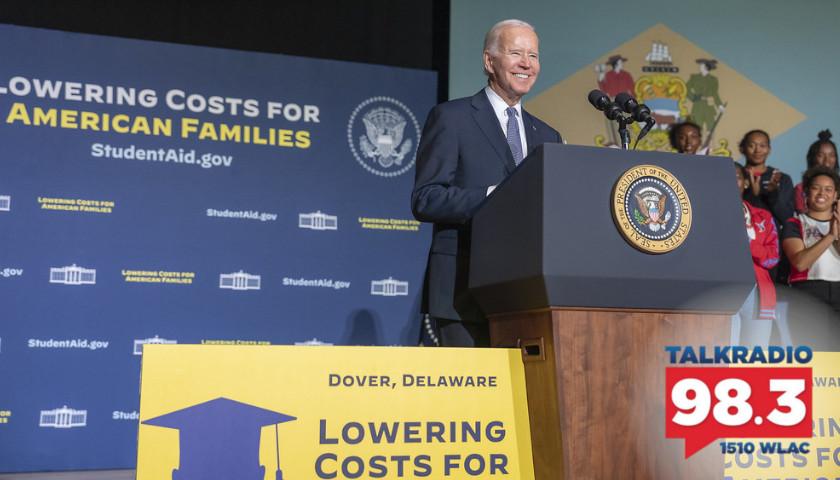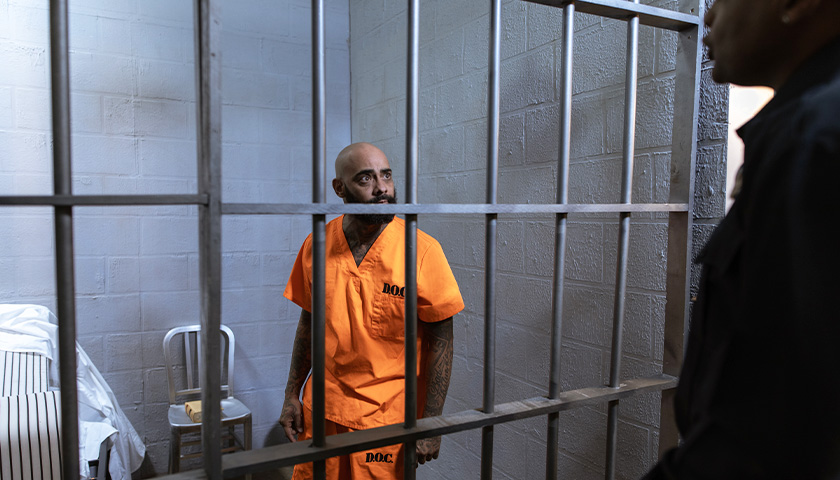Live from Music Row, Wednesday morning on The Tennessee Star Report with Michael Patrick Leahy – broadcast on Nashville’s Talk Radio 98.3 and 1510 WLAC weekdays from 5:00 a.m. to 8:00 a.m. – host Leahy welcomed the original all-star panelist Crom Carmichael to the studio for another edition of Crom’s Crommentary.
CROM CARMICHAEL:
Michael, you know it was interesting when you were talking to John Harris about the Constitution. The Constitution as a document was designed to do two things: One was to empower a national government and the other was to then limit those powers. And there is a whole section in the Constitution that enumerates the powers that the federal government has.
And then it goes on to say that if powers are not enumerated in the Constitution and given to the national government then they are left to the states. And over time, that part of the Constitution has more or less been forgotten and ignored. And the left-leaning justices on the Supreme Court don’t even think the Constitution is relevant anymore if they like the proposed outcome by either Congress or apparently the president.
Because the case yesterday was brought before the Supreme Court and argued about whether or not Biden has the authority to eliminate 20,000 of student debt regardless of anything else. And without congressional authority to do so, that case was argued.
And the two sides were apparently doing the questioning during the arguments. It was fairly laid out on the left-leaning side where their argument wasn’t even to the question of whether Biden can do it. They simply argued that the states that were the plaintiffs in the case had standing.
And they didn’t want to touch the actual argument. But here is the law that the states say apply. I’m going to read from an article in The Wall Street Journal and quote this. The law that Biden is trying to use is the Heroes Act, and that law says, “Relief can be given as necessary ‘in connection with a war or other military operation or national emergency.”
That’s when you can grant student debt relief. I’ll read that again. In connection with a war or other military operation or national emergency. It’s not a big long law, but this part of it is clear from the text of the law and from the arguments that various parties, even Nancy Pelosi has said in years past. Student debt cannot be forgiven by a president.
She said this when there was a Republican president. Biden has said while he was president that he didn’t think he had the authority to give $50,000 in debt relief. If you can’t give $50,000 in relief, why do you think you have the authority to give $20,000 in debt relief?
So that’s what that case is about. What is also interesting is when Biden said he wants to give that debt relief, there was no set-off. And that is also something that historically, and when I say historically, this has been so loosely handled and this is why these types of things don’t work very long.
You should have set-offs if you come up with some kind of spending initiative. You have to cut spending someplace else or you have to raise taxes. And he isn’t proposing any of those things. He just wants to spend another half trillion dollars on debt relief. What does that do for the incoming students?
Doesn’t do a thing. It’s one little group of students in a period of about 10-20 years where most of them it turns out middle income or upper-income white people. Even by his equity standards, he is not holding true.
The arguments have been made. The questions that were asked make me predict that the court will rule that the president, not Biden, a president does not have the authority to give debt relief for students without an act of Congress.
Listen to today’s show highlights, including this Crommentary:
– – –
Tune in weekdays from 5:00 – 8:00 a.m. to The Tennessee Star Report with Michael Patrick Leahy on Talk Radio 98.3 FM WLAC 1510. Listen online at iHeart Radio.





